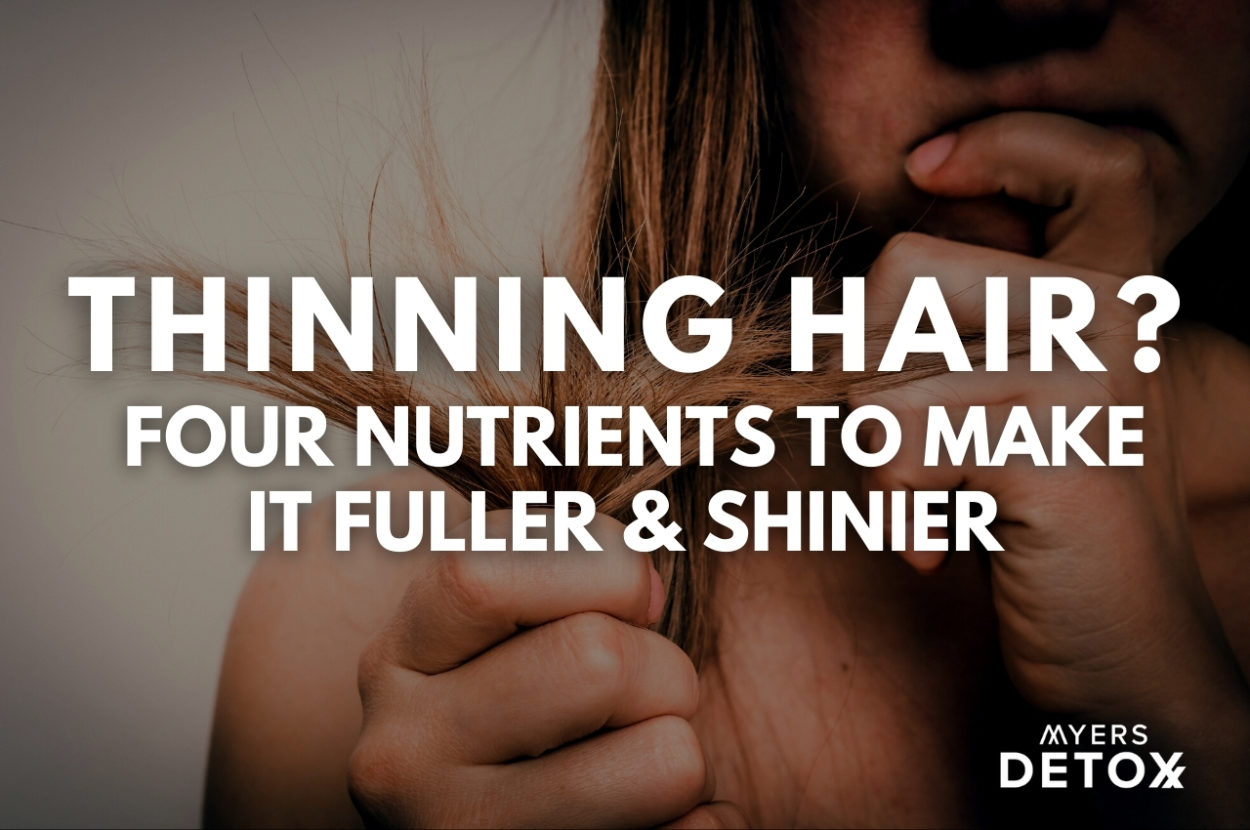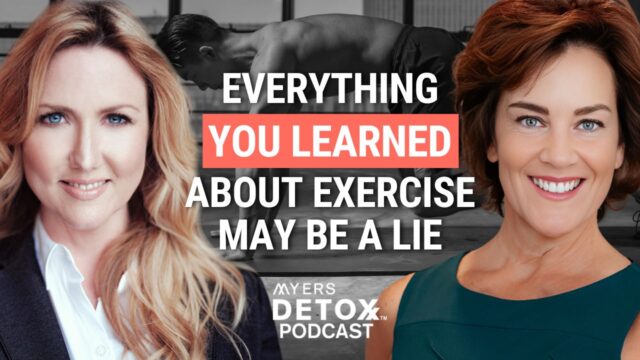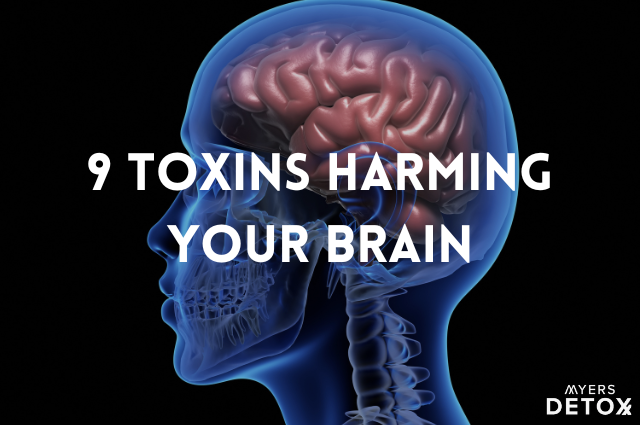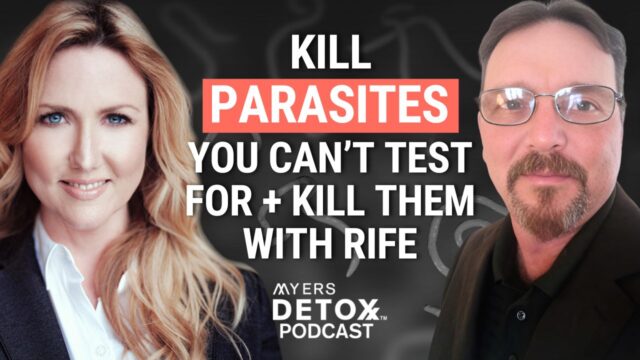It typically doesn’t happen overnight, but one day you look in the mirror and ask yourself, “where did all my hair go?”. When you’re young, your hair is thick and lustrous, but with age (along with several other factors), hair can start to thin out. In fact, it’s estimated that 50% of women will experience noticeable hair loss at least once in their life[1].
While it may seem like purely an esthetics issue, thinning hair is often a sign of an underlying condition like stress, hormonal imbalance, or nutrient deficiencies. Taking care of your body as a whole is crucial, but as you manage whatever condition is at the root of hair loss there are some fantastic nutrients that can help to nourish your hair and scalp to stimulate regrowth.
Can you come back from thinning hair? Absolutely.
In this article, you’ll learn:
- Why you’re losing your hair
- Which heavy metals cause hair loss
- The role that nutrition plays in hair health
- The four vital nutrients that keep your hair healthy
- The ultimate trick to keep your hair thick and lustrous
Why You’re Losing Your Hair
There are several reasons that you might be losing your hair, but the most common include[1][2]:
Hereditary
Hereditary hair loss with age is one of the most common causes of hair loss. While it’s more common in men, some women also experience hair loss along with the crown of the scalp as they get older. This is often referred to as male pattern baldness or female-pattern hair loss.
Hormonal Changes
Many women find that as they hit menopause, their hair starts to thin. This is due to the drop in estrogen and progesterone and the subsequent increase in the activity of androgens (male hormones). In addition, during and after menopause, some women’s hair follicles shrink, resulting in finer hairs.
If you’re noticing hair loss prior to menopause, it could also be an imbalance in your thyroid hormones.
Hair Style
Believe it or not, a common cause of hair loss is the way that you style your hair. Ponytails and braids can pull at your roots and eventually cause your hair to fall out. Although it may seem like a small detail, if your hair follicles become damaged due to strain, the hair loss could become permanent.
Hair treatments like toxic dyes and bleach or straightening treatments with formaldehyde can also result in hair loss over time, especially if your scalp becomes damaged.
Stress
A few months after a very stressful event that causes physical or emotional shock, many people will experience hair loss. This type of hair loss is referred to as telogen effluvium and is a temporary response by your body to sudden changes. Surgeries, rapid weight loss, illness, and having a baby are all conditions that could instigate telogen effluvium.
Heavy Metals
Heavy metals are a common cause of hair loss. Many never learn this underlying root cause. Metals like arsenic, thallium, cadmium, mercury, uranium and copper are frequent culprits. I’ve had this happen myself when I was detoxing a large amount of uranium.
One fifth of my hair fell out, but then it grew back. But it was very disconcerting to see clumps of hair come out in the shower. I soon figured out it was a heavy metal leaving my body and was only a temporary hair loss.
However, for some people the metals induce autoimmune hair loss like alopecia. And they need to support the natural detoxification of these metals to prevent further hair loss.
Nutrient Deficiency
Several nutrient deficiencies can result in hair loss, including iron, riboflavin, vitamin B12, biotin, vitamin D, and folate. While the exact role that each of these nutrients plays in hair health varies greatly, there truly is no function in your body that doesn’t require vitamins and minerals for optimal function[3][4].
Before you go supplementing with every nutrient known to man, however, it may be best to look at your diet. Consuming a standard Western diet of processed foods, low-quality meat, and added sugars has been associated with hair loss[5]. Therefore, simply cleaning up your diet could do wonders for hair growth.
With that being said, there are a handful of nutrients that could significantly impact your hair health when added to your beauty routine.
Nutrients That Support Healthy, Strong Hair
Silica, selenium, biotin, and hyaluronic acid are four nutrients that play an important role in your hair and scalp’s health. Regardless of the cause of your hair loss, these nutrients can support the regrowth and condition of your hair to bring it back to its natural thickness and luster.
Silica
Silica is a mineral that plays a strengthening role in your hair. Having a high silica content in your hair shaft results in thicker, stronger hair with more elasticity. This means less brittleness and breakage. It makes sense then that the higher the silica content of your hair fibers, the lower the rate of hair loss[6][7].
Silica also gives hair shine and bounce. Silica is what gives vegetables a shiny skin. It has the same effect for your hair as well.
Some research suggests that silica’s strengthening effect comes from its interaction with keratin, a protein that surrounds your hair shaft and protects it from breakage while enhancing its elasticity[8].
It’s also been postulated that silica may help drive nutrients to your hair shaft. Silica is well-known for its ability to increase bone mineral density by supporting the bone’s mineralization process. Therefore, some sources suggest that silica may have the same effect on your hair, increasing its mineralization and, therefore, its strength and nourishment[9].
Another one of silica’s many benefits is clearing metals from your system that promote hair loss. Silica has the ability to clear arsenic and thallium for your system that are shown in the research to contribute to hair loss.
Selenium
During your hair shaft formation, a process called keratinization, your hair receives selenium from your blood and incorporates it into its matrix. The role that selenium plays in hair health is twofold: it combats oxidative stress, and it plays a role in several enzyme systems[10].
Regarding oxidative stress, selenium plays a crucial role in protecting your skin from UV radiation from the sun. While this can significantly impact skin health and anti-aging, it also impacts the effects of UV rays on your scalp. When your scalp is exposed to excessive UV radiation, it can instigate oxidative stress and damage your hair follicles. Selenium acts as a powerful antioxidant, protecting your scalp and hair from potential UV-induced oxidation[11][12].
Selenium is also a component of at least 35 proteins, many of which are enzymes that are either directly or indirectly involved in maintaining hair health. Deficiency in selenium can result in premature graying and hair loss, with many selenium-deficient individuals reporting premature graying and thinning hair[13][10].
Biotin
Biotin is one of the most well-known nutrients for hair health. Although researchers haven’t nailed down a specific mechanism, it’s clear that biotin has a strengthening impact on your hair, skin, and nails. In fact, one of the hallmark traits of biotin deficiency is hair loss[14].
There are a few proposed mechanisms by which biotin supports the health of your hair, the first being its role as a crucial cofactor for enzymes. Specifically, biotin is a cofactor for enzymes involved in keratin synthesis, which is the primary structural protein in your hair and nails. This may be the reason that when you have low levels of biotin, your nails break more easily, and your hair becomes brittle[15][16].
The second way that biotin may support healthy hair is due to its sulfur content. Sulfur influences the state of your skin’s outer layer, including the skin on your scalp. Research shows that sulfur can stimulate hair growth while also lowering the secretion of a substance called sebum. Sebum is an oily/waxy substance secreted by your sebaceous glands to provide lubrication to your skin. However, when you secrete too much sebum, it can clog your pores and cause your hair to fall out or thin[10].
Finally, a deficiency in biotin can result in skin inflammation and seborrheic dermatitis, which results in dandruff and hair loss. Therefore, being sure that you are replete in this crucial vitamin may protect your hair and scalp of multiple levels[10].
Hyaluronic Acid
Hyaluronic acid (HA) is crucial for the hydration of your skin as its structure readily binds and holds onto water.
In fact, one gram of HA can bind up to six liters of water[17]. For this reason, some experts recommend shampoo containing hyaluronic acid (HA) to help bring moisture to your scalp, strengthening your hair and providing more elasticity. This may be especially beneficial if you have dry or damaged hair.
Furthermore, research shows that hyaluronic acid may support the regrowth of hair by stimulating cell proliferation in the extracellular matrix and promoting the reconstruction of hair follicles[18].
Your Hair Loss Secret Weapon
If you’ve struggled with hair loss in the past, you’ve likely tried one or more of the above nutrients. The problem is, supplementing with a single nutrient rarely does the trick when it comes to hair loss.
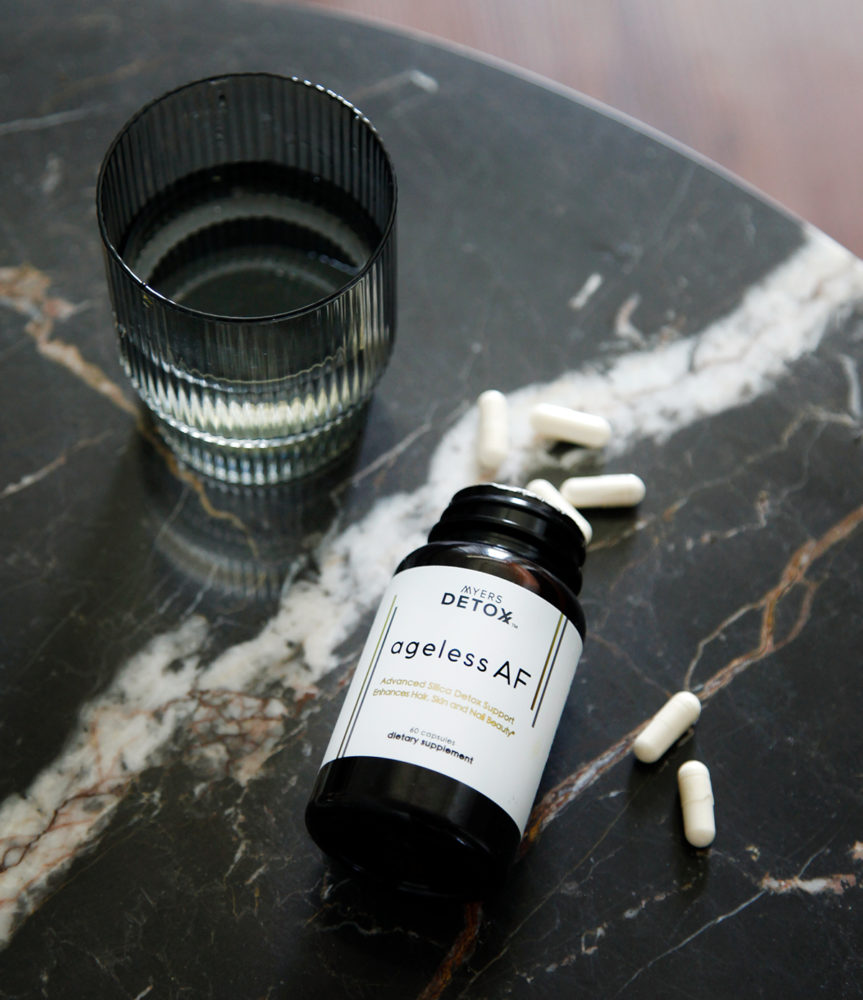 While supporting your scalp with nutrients like hyaluronic acid and selenium can go a long way, you also need to be nourishing and strengthening your hair shaft directly with nutrients like biotin and silica.
While supporting your scalp with nutrients like hyaluronic acid and selenium can go a long way, you also need to be nourishing and strengthening your hair shaft directly with nutrients like biotin and silica.
This is why I recommend Ageless AF to my clients that are suffering from hair loss. Ageless AF is a formulation that includes high-quality silica, selenium, biotin, and hyaluronic acid for a full-spectrum hair fortifying supplement.
Takeaway
Hair loss can be the result of several different factors. What all of these factors have in common, however, is that they disrupt the integrity of your hair follicles and hair shaft. Whether it be damage to your scalp from hair treatments, a hormonal disruption caused by menopause or aging, a heavy metal poisoning proteins or a nutrient deficiency – if your hair is falling out, vital nutrients aren’t getting where they need to go.
While there are hundreds of products on the market for hair health, it really comes down to which nutrients stand up against scientific research.
Silica, selenium, biotin, and hyaluronic acid are four crucial ingredients that nourish your scalp and bring vitality back to your hair.


